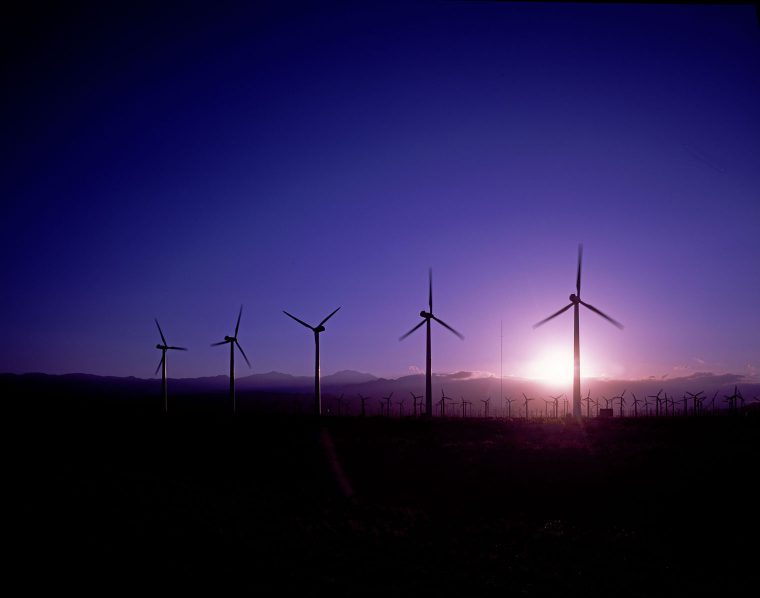- 3D Print Bureau
- 6K
- Agmatix
- Airwayz
- AM-Flow
- Appadda
- Caracol
- CG Trader
- CyberOptics
- e-Xstream
- GenCell
- GreenEye
- Impossible Objects
- Incus Media
- InkBit
- ITG
- JPB Systeme
- KeyProd
- Landa
- LEO Lane
- Lumet
- Magic Software
- MakerBot
- Marketiger
- Nano Dimension
- Paragon Rapid Technologies
- PearlX
- Plant & Bean
- Redefine Meat
- Replique
- Ripples
- Sakuu Corporation
- SolarEdge
- StoreDot
- Stratasys
- Sunrock
- The Bespoke Group
- Trigo
- UltiMaker
- Xjet
How alternative energies are powering a cleaner – and more reliable – future
Author: Anaïs Martin, Account Manager, The Bespoke Group
Finding yourself without electricity at work for half a day can be quite ironic for someone working on an energy project. This is what happened to me some months ago, when a simple maintenance fault on the electrical line left the whole street in the dark, without power, without computers, without telephone and without internet! You quickly realise that you’re nothing without electricity, a complete disaster in a society that can’t survive without Google.
With an ever-growing population and an increasing requirement for energy efficiency, one wonders how power suppliers will handle the demand in an unpredictable future. In the last decade, we’ve seen big cities suffering from spectacular blackouts which seems inconceivable in our modern times. The last one took place in Brussels, Belgium, last February. The incident plunged the Belgian capital into the dark and caused a panic among its inhabitants who momentarily feared a terror attack. Sibelga, the power company, and Elia, the network operator, announced that it was due to grid failure.
It might seem incredible, but energy providers are facing a real challenge in ensuring continued, robust and a responsive power supply without interruption or other serious incidents. And as governments and society starts to take global warming seriously, there is also an increasing pressure to produce energy without pollution or a lasting impact on the environment.
Climate change is having an impact on the world economy, and energy production is the cornerstone of critical change.
Many industries are innovating to meet this challenge, and there’s much talk about “alternative energies” being developed or introduced to achieve it. But what does this mean? Alternative to the fossil fuels that have powered the growth of world economies and still create unimaginable wealth today?
Surprisingly, alternative energies weren’t developed to face an environmental problem but an economical one. Following the historical rise of the price of oil in the 1970s caused by OPEC’s embargoes on selling oil to the USA and other countries, the USA researched developing ethanol from agricultural production as an alternative to petrol, followed by Brazil, which turned to the extensive and cheap sugar cane production to produce fuel.
However, it’s taken nearly three decades to integrate alternative energies into standard energy production. The main reason is that the first attempts to find these alternative energies were unsuccessful and inefficient, and even those that did work were not perfect.
Nuclear power is one example of an alternative energy source that’s relatively efficient, but importantly, the cost is not impacted by world politics and freight supply issues. However, it’s well-documented that it’s difficult and expensive to dispose of nuclear waste adequately, and in the event of a power plant failure such as Chernobyl, the consequences can be disastrous.
Newer, non-polluting and renewable energy solutions such as wind turbines and solar panels have generated a lot of hope. The promise was that we might one day be able to produce ‘clean’ energy from natural resources. Ten years ago, these technologies were synonyms of the future – subsidised by governments, people were eager to set-up solar panels on their rooftops to support such green initiatives. But these subsidies dried-up. Why? Because of the financial crisis of 2008. In an instant, with the price of oil having fallen and budgets under extreme pressure, many residential based environmental projects such as these were cancelled or put on hold.
But larger scale alternative energy projects continued. Whilst they initially struggled to provide the efficiency and consistency required of them, especially with expensive installation and maintenance costs, wind and solar technologies, specifically, are becoming more efficient and cheaper to produce and run – with many countries (sunny ones) now using solar as a sizeable proportion of their power.
A very strong technology contender to supply our electricity in the future, is the hydrogen fuel cell. This robust and reliable technology doesn’t emit CO2 and is already being used in markets such as utilities, telecoms and homeland securities, to provide back-up power to critical systems. Again, this technology has taken a while to get right, but today, the technology has evolved, been refined and is being introduced into a number of different markets. For instance, Japanese and Korean auto manufacturers such as Toyota and Hyundai, have recently installed them into certain electric or hybrid models – but for this application, there is still more work to do in making fuel cells cost competitive with fossil fuels.
So, in 2017, we seem to have made good progress in rolling-out cleaner and greener alternative energies. However, to truly replace fossil fuels, we will need to overcome three key challenges first: cost competitiveness; reliability and convenience.
And of course, it will require continued governmental investment and pressure on suppliers to achieve it. But, for me it’s an easy decision – we pay the financial cost today, to avoid paying the environmental cost in years to come.






